The power of social currency rests in the hands of those who understand the economic value of organic engagement versus visibility.
From 2013 to 2016, we saw the birth of the social media influencer, a class of internet gatekeepers whose massive social media followings caused brands to believe that their visibility would translate into an impact on purchase decisions. Thus, a new market was born where brands paid influencers to use or endorse a product, hoping to convert their followers into paying customers. The influencer-marketing phenomenon raised awareness about the importance of discovering personal branding. People began to understand that they could make themselves valuable by developing an audience, and becoming a thought leader in a niche market.
The success of any business model comes with over-saturation. People began to adopt the term “influencer” after simply building (or purchasing) a considerable amount of followers. The issue was that having a solid number of followers gave a great deal of visibility, but it didn’t necessarily mean every individual had tangible social authority capable of influencing their followers to buy a product. The result was a loss of value in the term “influencer.” Some did exist, but there were more people with large followings than people with large followings coupled with authority in their respective niche or industry.
Now, the world of influencer marketing is transitioning into a new phase that will place even more power in the hands of the real influencers. The social marketplace has arrived, where folks with real authority are identifying the fact that they don’t have to rely on brands for a check. They’ve actually created their own unique customer base, a direct-to-consumer market that is organically engaged with them as a person. In this space, an entrepreneurial opportunity awaits those who can create their own product, tailor made for an audience ready to support their endeavors. After all, people no longer feel attached to products, they feel attached to people.
Monica Lin, the Marketing Director for streetwear brand Popular Demand, has identified this opportunity and she’s turned her influence into ownership.
Lin is the young professional your favorite out-of-touch marketing expert loved to categorize. She’s beautiful, stylish, and hardworking. Her Instagram boasts a following of over 56,000, and she rubs shoulders with other up-and-coming leaders pushing pop culture forward using the internet. Of course, there’s more to Lin than that. She’s a model of what it means to simultaneously build tangible work experience and an organic following, using both assets to transition into the realm of ownership. Lin is in a unique space where she has created a direct-to-consumer market for herself. Her work experience has played out right in front of her followers, validating her voice in fashion and marketing. The people following genuinely interact as fans of her work, ready to support her endeavors. Lin spoke with REVOLT about how she is combining her professional experience with her organic following to venture into brand ownership through her new company, Eyelust.
What inspired you to create Eyelust?
Kiona [Stowers] and I created Eyelust because we have been working for a men’s brand for the past five years and decided that it was time to get together to create something for women. We thought, “Hey, girls could use a better place to buy really good, stylish, affordable sunglasses,” so we made it.
Did you always know that you wanted to be an entrepreneur?
I always knew I wanted to do something great in a field I loved – fashion. My passion began in streetwear and I’ve had the opportunity to grow and experience different parts of the fashion and entertainment industries.
Was there a certain set of lessons that you knew you needed to learn from Popular Demand before going into business for yourself?
Of course! You have to learn every day; you have to learn everywhere you go. If I’m in a meeting and something comes up that I don’t know about, I’ll get my phone out and Google it. If I don’t understand something, I’ll ask someone to explain it to me. The most valuable thing that I’ve learned from Popular Demand is the experience of building a brand from scratch. When I started, no one knew what it was. That really motivated me to make it known to anyone and everyone that I could reach. People think they can start a business, open the doors, and customers will come. That’s not the case. You can build an amazing product and no one would ever know about it without marketing.
Did you have specific fears or doubts about going into business for yourself?
When you start something you’ve never done before, whether it’s a business or something else, you always risk failure. Everyone has doubts, including me, but you have to have a level of fearlessness to do it, that “fuck it!” mindset. Some people are better at it than others, but I always leave room for growth. If you strive for perfection each time, you’ll never get anything done.
Was it always your plan to build an audience for yourself so that you could transition that audience into a direct customer base?
I think it’s always been the plan to continue bringing different opportunities to all the amazing people I’ve had the honor of working with. I always knew that we created something special through Popular Demand that exceeded even the brand itself. At the end of the day, it’s all about the people. I want to continue doing cool stuff with all of the dope people that I’ve met along the way of my journey, which includes Eyelust and more.
Every brand has a culture that its buyers subscribe to. How will you go about establishing a culture for the Eyelust brand?
I think brand cultures have to be genuine; you can’t just make up a culture, everyone will see right through it. The Eyelust culture reflects the lifestyle that Kiona and I both live: we’re always busy, we get shit done, and we want to highlight all the other boss girls out there.

There’s a difference between a brand and a business. You can have a popular brand, a dope aesthetic, and everything in between without actually having a viable, working business model. Do you think that people miss this point nowadays? What advice would you give anyone to avoid confusing the two?
I think a lot of people also have the opposite – a business with no brand. It’s definitely hard to master both, which is why you have to accept that no one is good at everything. In order to succeed, you have to build a team of very talented and passionate people. It takes time because not everyone is fit for this life. Branding involves a lot more marketing and figuring out the spirit of your brand and the business side is much more technical. I’ve never met anyone who is good at both. The key is to focus on what you’re very good at and get other people who excel in the areas you fall short on.
Do you plan to evolve into more products beyond eyewear?
Definitely a possibility. I want to utilize the experience and knowledge that we gain from Eyelust to expand into more product categories that Kiona and I both use and love.
Monica believes that there’s a distinct difference between influencers and actual culture creators. In her opinion, culture creators establish the ethos of how we live and what we care about, and influencers just perpetuate it.
“It’s like trendsetting and the latter is trend-following. You can definitely do both, but being a culture creator is much more difficult because you have to be wiling to try things that haven’t been done yet. We could use more culture creators in this world because it opens up more opportunities to make the world a better place.”
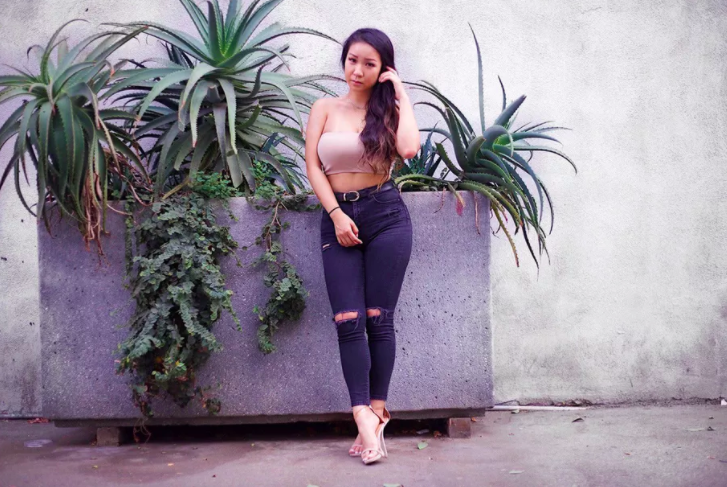
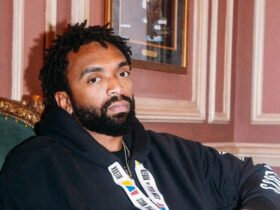
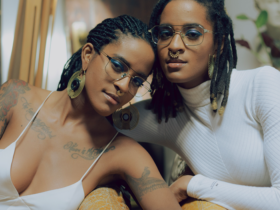
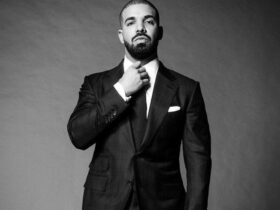
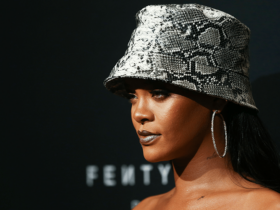
Recent Comments